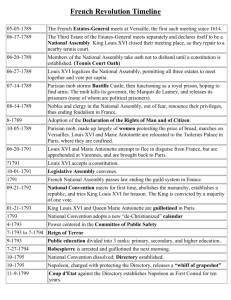Notes
advertisement
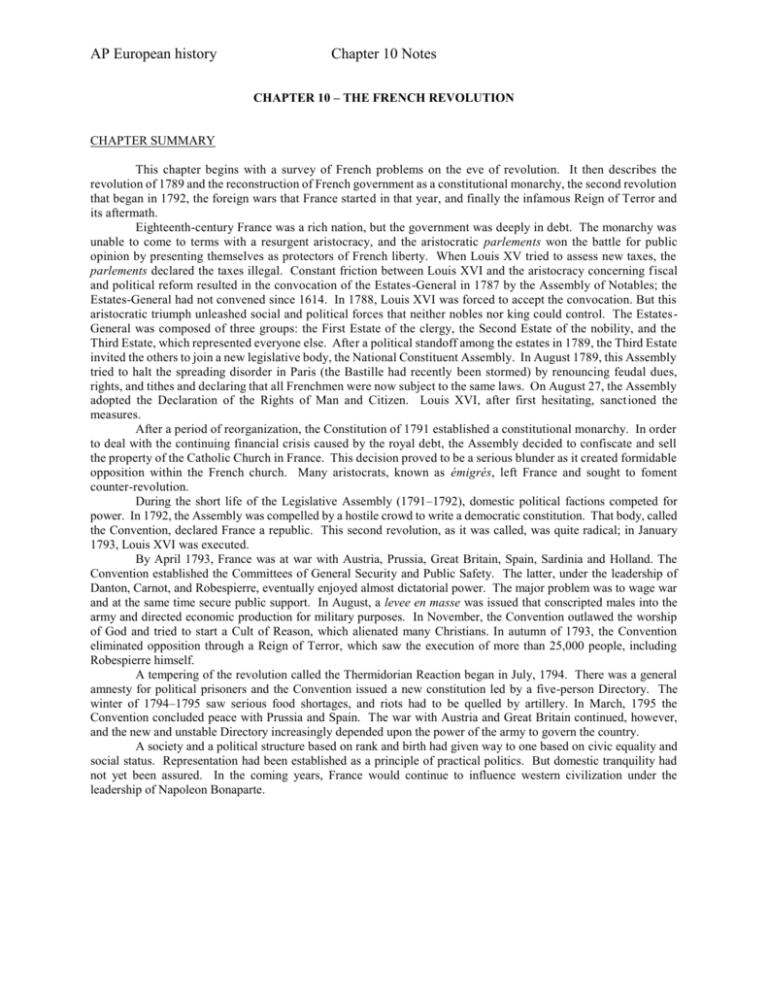
AP European history Chapter 10 Notes CHAPTER 10 – THE FRENCH REVOLUTION CHAPTER SUMMARY This chapter begins with a survey of French problems on the eve of revolution. It then describes the revolution of 1789 and the reconstruction of French government as a constitutional monarchy, the second revolution that began in 1792, the foreign wars that France started in that year, and finally the infamous Reign of Terror and its aftermath. Eighteenth-century France was a rich nation, but the government was deeply in debt. The monarchy was unable to come to terms with a resurgent aristocracy, and the aristocratic parlements won the battle for public opinion by presenting themselves as protectors of French liberty. When Louis XV tried to assess new taxes, the parlements declared the taxes illegal. Constant friction between Louis XVI and the aristocracy concerning f iscal and political reform resulted in the convocation of the Estates-General in 1787 by the Assembly of Notables; the Estates-General had not convened since 1614. In 1788, Louis XVI was forced to accept the convocation. But this aristocratic triumph unleashed social and political forces that neither nobles nor king could control. The Estates General was composed of three groups: the First Estate of the clergy, the Second Estate of the nobility, and the Third Estate, which represented everyone else. After a political standoff among the estates in 1789, the Third Estate invited the others to join a new legislative body, the National Constituent Assembly. In August 1789, this Assembly tried to halt the spreading disorder in Paris (the Bastille had recently been stormed) by renouncing feudal dues, rights, and tithes and declaring that all Frenchmen were now subject to the same laws. On August 27, the Assembly adopted the Declaration of the Rights of Man and Citizen. Louis XVI, after first hesitating, sanct ioned the measures. After a period of reorganization, the Constitution of 1791 established a constitutional monarchy. In order to deal with the continuing financial crisis caused by the royal debt, the Assembly decided to confiscate and sell the property of the Catholic Church in France. This decision proved to be a serious blunder as it created formidable opposition within the French church. Many aristocrats, known as émigrés, left France and sought to foment counter-revolution. During the short life of the Legislative Assembly (1791–1792), domestic political factions competed for power. In 1792, the Assembly was compelled by a hostile crowd to write a democratic constitution. That body, called the Convention, declared France a republic. This second revolution, as it was called, was quite radical; in January 1793, Louis XVI was executed. By April 1793, France was at war with Austria, Prussia, Great Britain, Spain, Sardinia and Holland. The Convention established the Committees of General Security and Public Safety. The latter, under the leadership of Danton, Carnot, and Robespierre, eventually enjoyed almost dictatorial power. The major problem was to wage war and at the same time secure public support. In August, a levee en masse was issued that conscripted males into the army and directed economic production for military purposes. In November, the Convention outlawed the worship of God and tried to start a Cult of Reason, which alienated many Christians. In autumn of 1793, the Convention eliminated opposition through a Reign of Terror, which saw the execution of more than 25,000 people, including Robespierre himself. A tempering of the revolution called the Thermidorian Reaction began in July, 1794. There was a general amnesty for political prisoners and the Convention issued a new constitution led by a five-person Directory. The winter of 1794–1795 saw serious food shortages, and riots had to be quelled by artillery. In March, 1795 the Convention concluded peace with Prussia and Spain. The war with Austria and Great Britain continued, however, and the new and unstable Directory increasingly depended upon the power of the army to govern the country. A society and a political structure based on rank and birth had given way to one based on civic equality and social status. Representation had been established as a principle of practical politics. But domestic tranquility had not yet been assured. In the coming years, France would continue to influence western civilization under the leadership of Napoleon Bonaparte.
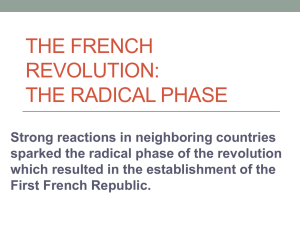
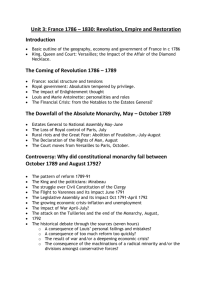
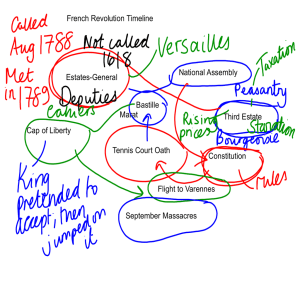
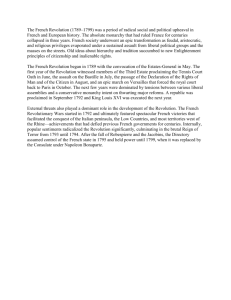
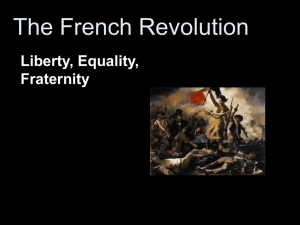

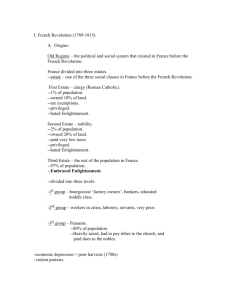
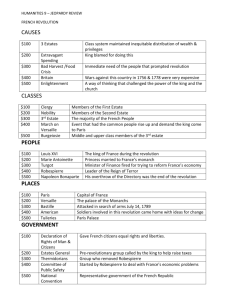
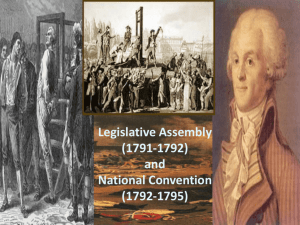
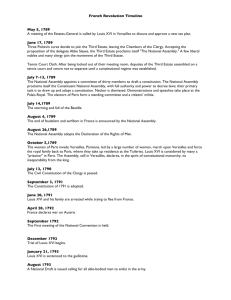
![The+French+Revolution[1]](http://s3.studylib.net/store/data/009711599_1-053e7d27951d653231c71a5c34a0bb8f-300x300.png)
